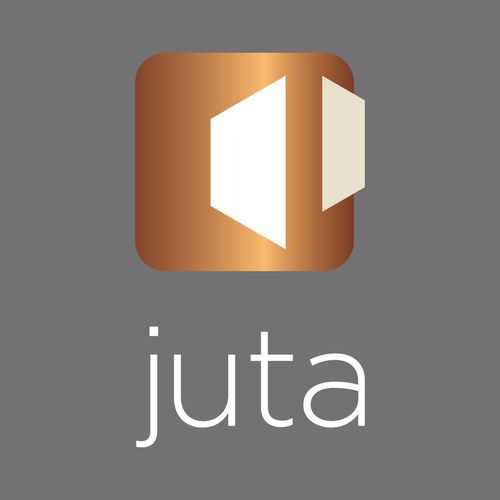- Home
- Products & Services
- About
- Blog
- Faq
- Contact Us
With October being mental health month, we interviewed Juta’s Chief Human Resources Officer, Zaida Samuels. An accomplished Human Resources Executive with twenty years’ experience across various sectors including metal, transport, digital, training and beverages, Zaida has been on the Juta team since May 2021. She holds a B.Com degree specialising in Human Resources and has a keen interest in talent development, business processes, coaching and mentoring, making her the perfect person to head up Juta’s Corporate Social Responsibility programme, where she integrates her passion for community upliftment and people development through various initiatives.
Zaida, what role can HR play in the lives of employees, and creating a resilient and positive environment within companies?
HR plays a critical role in normalising the shift to prioritising mental and emotional wellness in the workplace. That said, it is also important for HR to be ‘the safe space’ that staff can share their concerns or challenges and trust that it will be fairly addressed. Awareness workshops and wellness programmes are great at equipping management and staff with information on how to identify and support employees, colleagues and family with mental health issues.
What are the benefits of a corporate culture supporting mental wellness and soft skills development over previously prioritised hard skills?
There are many benefits, including a happy and productive workforce – the ultimate goal for a business! This is because data suggests that burnout and stress are the leading factors affecting productivity today. Therefore, it only makes sense that a corporate culture supporting mental wellness goes a long way to building a healthy workplace. Where this was once only a focus for leading multinationals in the past, smaller businesses have had to quickly realise that wellness has become the new sought-after employee benefit to not only retain great staff but maximise their input into projects.
“Year-end fatigue” is a trending topic at the moment as we end our first full year back to business after Covid, but what is it?
I think it is best defined as the emotional and physical burnout that reaches a peak towards year-end. Everyone is more irritable, tired, frustrated, and looking forward to recharging!
What are the root causes for this?
There could be many causes in my opinion, and we need to take responsibility for the reality that some of it is self-inflicted, because of procrastination, poor time management or other distractions. Within the workplace environment it could be because of pressure; the end of year is close and there is possibly a limited window to complete goals. This potential feeling of failure creates enormous stress, coupled with the constant pressure throughout the year reaching a climax. Psychologically, having an end in sight could result in people feeling they have run out of energy and motivation.
What are the negative side effects of this burnout?
- poor concentration
- poor work performance
- poor decision making
- low motivation
- emotional irregularity
Continuing from that, what are three things employees can do to sustain their mental health and energy for the last two months of the year, but also beyond?
Employees can only manage their mental health and energy in an environment that supports it; therefore a corporate culture of awareness around these issues is critical in employees managing themselves effectively.
- To avoid pressure, ensure that good planning with achievable deadlines is in place
- Keep your manager informed of your progress so as not to create anxiety where you feel deadlines are being missed
- Furthermore, following a good diet with regular exercise is key to a good mental balance and provides the necessary energy to push through
A simple and sustainable self-care practice is to make sure you take necessary lunch breaks during the day and get enough rest to keep you energised.
And the next part: What can other employers and businesses do to motivate and enhance the holistic wellness and enthusiasm of employees?
As previously mentioned, businesses need to acknowledge the importance of the wellness of their employees, not only from a mental perspective but also health, financial and other aspects of wellbeing. The first step is to understand the needs of employees in relation to business requirements. For example:
- With high cost of living and costs of transport, look at hybrid / remote work options where possible to accommodate and support staff.
- Celebrate small successes regularly to build and encourage an environment of recognition.
- Continue to share information and tips on how to manage and improve wellness.
How can employees – and employers – measure their mental health and stress levels?
Many chronic illnesses are clear indicators of mental health and stress issues.
- Poor concentration
- Demotivation
- Weight gain
- Poor sleeping patterns
- Mood swings
- Anxiety
- General health issues
A good wellness programme through your medical aid can assist employees with understanding these levels. Tools for coping and managing these issues are also available and should be maximised by the business to keep employees fresh and motivated year-round!
Leaders are battling with how to manage performance as they are not comfortable managing performance remotely. How do we train leaders to measure performance by measuring output qualitatively and quantitatively?
It simply comes down to trust and relationships. There needs to be trust that employees deliver as expected, whilst employees must work with integrity and deliver as promised.
- Regular check ins and clear instructions are key to the success of remote management.
- Invest in training managers on ways to manage remotely – don’t assume they should know how to do this!
- Highlight what has worked and what has not and continue to evolve.
- This is a behaviour that must be reinforced and consistently applied across the business for it to really be successful.
How can we all positively promote mental health awareness and positive culture in the work environment, especially a hybrid one? This is particularly prominent in OECD countries, who are experiencing resignation waves with employees unwilling to go back to old ways of work.
This will be easier to do in professional environments rather than manufacturing type of environments. Unfortunately, manual labour makes up a large component of the workforce in OECD countries. Therefore, the inconsistency in promoting mental health awareness, in these countries, could create friction.
However, promotion of mental health awareness and a positive culture is key to any working environment, and not only a hybrid one. I’m starting to sound like a broken record but again, awareness workshops, info sessions, programmes and policies should be put in place to drive and support this.
How is the transition to hybrid work affecting corporate culture and employee mental health, considering the demands of “doing more with less” in a post-Covid climate?
I see the transition to hybrid work models as one of the positives that has come from the post-Covid era to be honest! This has been positively welcomed by employees and supported employees in trying to manage that all elusive work-life balance.
Of course, on the other hand, Covid has come with huge economic challenges to business, which in some cases has resulted in increased workload for many employees. Again, I emphasise that managing this effectively all comes down to relationships and trust: employees will give more when buying into the “why” they are doing it. In addition, managers must recognise the additional load and reciprocate with various forms of appropriate recognition.
Want to know more about the “Why” of your business and motivating employees? Watch this TED talk by Simon Sinek on how great leaders inspire action:

Kagiso Tiso & Kagiso Media Fraud Hotline: 0800 21 25 83


